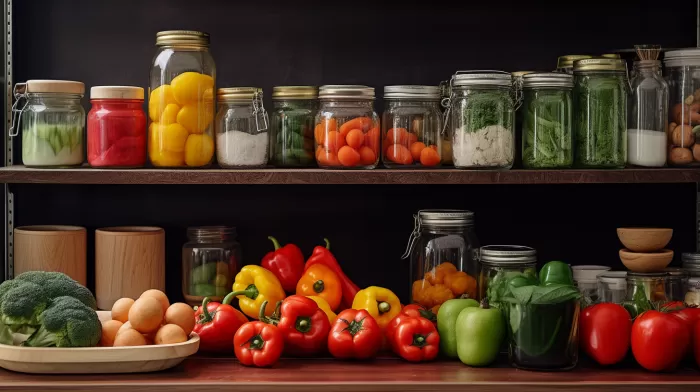“BPA-free” products have gained popularity as people become more aware of the dangers of toxins found in plastics. Bisphenol A (BPA) is used in hard, clear plastic products, while phthalates are used in flexible plastics. Both can cause adverse health effects like cancer, blood pressure increase, and diabetes vulnerability. Although it’s easier to avoid BPA exposure by choosing BPA-free products, phthalates are harder to dodge as they are present in various everyday items, including plastic food containers and wraps.
To limit phthalate exposure, including in your diet, consider the following suggestions:
1. Eat fresh fruits and vegetables
By choosing fruits and vegetables that have not been wrapped in plastic or packaged in plastic-lined cans, you can lower phthalate levels in your diet. Additionally, consuming organic produce can further protect your health from pesticides and other harmful chemicals.
2. Store food in alternative materials
Instead of using plastic containers, opt for wax paper, aluminum foil, glass, porcelain, or stainless steel containers to store food in the refrigerator. These options will keep your food fresh and reduce your exposure to toxins by avoiding plastic.
3. Heat food safely
Microwaving food in plastic containers can cause phthalates to migrate into your food. To prevent this, transfer food to glass or ceramic containers before reheating. When it comes to cooking, use non-toxic cookware like stainless steel or cast iron pots and pans instead of nonstick items that contain toxic chemicals.
4. Clean plastic containers cautiously
Washing plastic food containers in a dishwasher can cause plasticizers to leach out. Instead, wash these items by hand to minimize plastic breakdown and toxin exposure. It may also be helpful to discard scratched or worn plastic containers.
5. Check recycling numbers
When it’s unavoidable to use plastic containers, make sure to check for recycling numbers found at the bottom of the product. If you see numbers 3, 6, or 7, it means the plastic contains phthalates. Avoid using these items or switch to alternative storage methods mentioned above.
6. Limit exposure to phthalates outside the kitchen
Aside from monitoring food storage and consumption, it’s crucial to distance yourself from other sources of phthalates outside the kitchen. Keep vinyl toys away from children and choose fragrance-free personal care products whenever possible.
7. Detoxify your body
Even with all these precautions, it’s almost impossible to avoid phthalate exposure entirely. Therefore, consider detoxifying your body through different methods like water cleansing, juicing, or consuming a diet rich in cruciferous vegetables to help remove toxins and boost your overall health.
Incorporating these strategies into your daily habits can limit your exposure to harmful toxins found in plastics, ultimately contributing to a healthier lifestyle. Remember that it’s essential to take action and pay attention to the products you use and consume for the sake of your well-being.



![8 Simple Rules to Refresh Your Body with a Healthy Cleanse [See Pictures]](https://naturalhealthreserve.com/wp-content/uploads/2024/01/8-rules-healthy-cleanse-slideshow-300x168.webp)